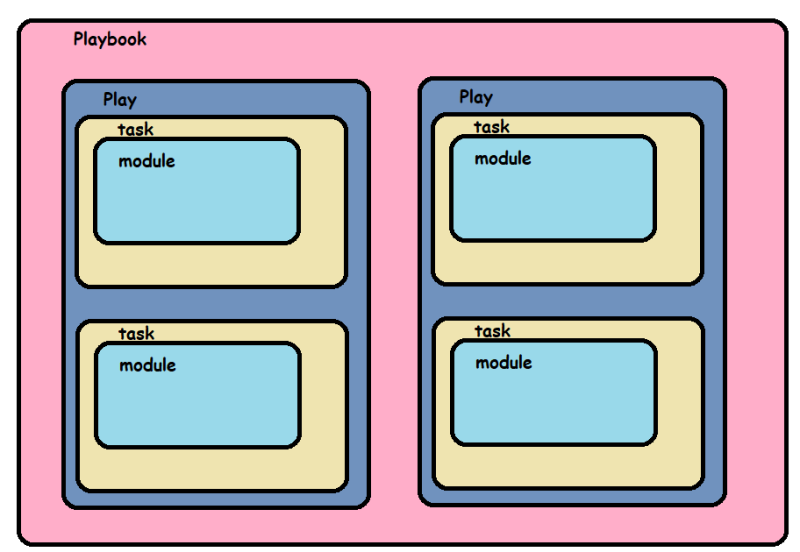A playbook (script file) is a file that describes the actions to be performed on a group of hosts.
Inside the playbook:
play is a set of tasks to be performed for a group of hosts
task is a specific task. The task contains at least: – description (task name can be omitted, but it is highly recommended) – module and command (action in module)

Playbook syntax
---
- name: Run show commands on routers
hosts: cisco-routers
gather_facts: false
tasks:
- name: run sh ip int br
raw: sh ip int br
- name: run sh ip route
raw: sh ip route
- name: Run show commands on switches
hosts: cisco-switches
gather_facts: false
tasks:
- name: run sh int status
raw: sh int status
- name: run sh vlan
raw: show vlan
The playbook has two scenarios (play):
- name: Run show commands on routers – script name (play). This parameter must be in any scenario
- hosts: cisco-routers – script will be applied to devices in the cisco-routers group
- Several groups can be specified here, for example, in this way: hosts: cisco-routers:cisco-switches
- Usually, you need to specify the remote_user parameter in play. But, since we specified it in the Ansible configuration file, you can not specify it in play.
- gather_facts: false – disable gathering facts about the device, since separate modules must be used for gathering facts for network equipment.
- tasks: – followed by a list of tasks
each task has a name (optional) and an action. There can only be one action.the action specifies which module to use and the module parameters.
Run playbook:
$ ansible-playbook show_commands_with_raw.yml